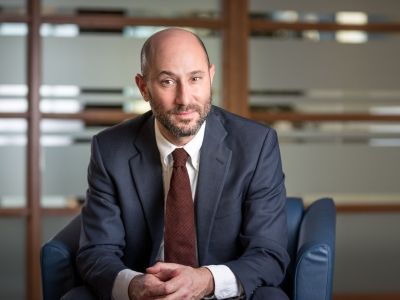
State leaders are now personally responsible for aggressive war. Under amendments to the Rome Statute, which take effect today, starting an unjust war violates international law and is prosecutable as the crime of aggression at the International Criminal Court (ICC).
“The crime of aggression is the newest, most controversial and least understood international crime,” explains Queen’s Law Professor Noah Weisbord, whose forthcoming book The Crime of Aggression (Princeton University Press) imagines the future of international justice in the age of drones, cyber-attacks, insurgents and autocrats.
Weisbord decided to study the crime of aggression, “international law’s supreme crime,” for his doctoral dissertation at Harvard in 2004 after meeting Benjamin Ferencz, an advocate for an international rule of law and permanent criminal court who in 1947–48 served as one of the prosecutors at the Nuremberg trials against leaders of Nazi Germany’s Einsatzgruppen.
Banning unjust war and holding individual leaders personally accountable for planning, starting, or waging aggressive war is not a new idea. Nuremberg and the tribunals set up in the 1990s for the former Yugoslavia and Rwanda had a great influence on the development of the crime of aggression. But neither were permanent.
At the Rome Conference in 1998, states agreed to give a permanent tribunal the jurisdiction to prosecute individuals for genocide, crimes against humanity and war crimes. They could not agree on a definition or jurisdiction for the crime of aggression. Weisbord helped draft the law for the ICC and advised the diplomats who adopted the amendments parties agreed to in 2010.
Weisbord is first to say that criminal accountability will not end war. “But it has the potential to influence the practice of domestic and international politics so that aggressive war is no longer a tempting option.”
An expert on the criminal law and intergroup conflict, Weisbord was a law clerk for Luis Moreno Ocampo, the ICC’s first prosecutor, and spent time in Rwanda researching the community-based genocide trials known as gacaca. Weisbord came to Queen’s Law in 2017 as a visiting professor and joined the faculty as an associate professor in May 2018.
2019 update: Prof. Weisbord and Professor Lisa Kerr discuss the book, now released, in this video: